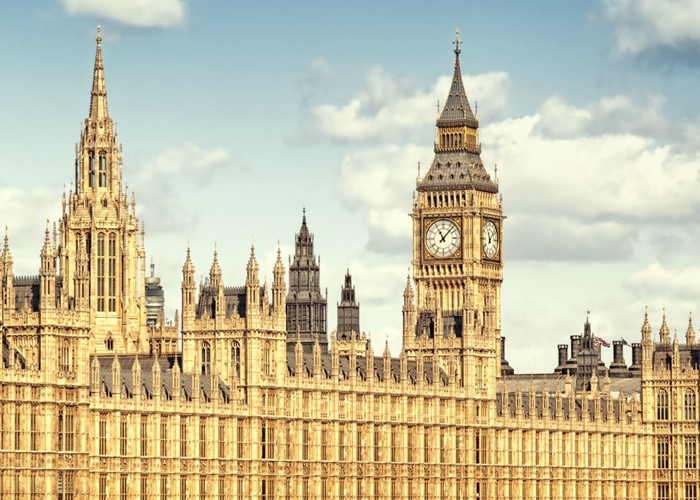Nick Clegg calls for UK wealth tax

The Liberal Democrats want to bring in a 'wealth tax'. But Nick Clegg's plans would hit homeowners the hardest.
Nick Clegg, the Deputy Prime Minster, has called for Britain's richest to pay more in tax.
Denying claims that his party wants to 'soak the rich', Clegg repeated his belief that those earning over £50,000 a year should contribute more to British society through higher taxes.
In addition, Clegg insisted that the Lib Dems would not allow any further spending cuts "on the backs of the poor". In a BBC interview, the Deputy Prime Minister said that the Lib Dems would not agree to more welfare savings unless their coalition partners also agreed to tax increases for the well-off.
The main problem with Clegg calling for higher taxation of those earning above a mooted £50,000 a year is that this group is relatively small. Indeed, only around one in 25 British workers (4%) earns above £1,000 a week (£52,000 a year). This puts roughly 1.2 million Brits into this category, out of a total workforce approaching 30 million.
Warning that he wants the rich to "make a fair contribution to this huge national effort of balancing the books", Clegg indicated that the Lib Dems would push for higher taxes on unearned wealth, such as property profits and capital gains.
Paying your fair share
Clegg's argument has some appeal: those Brits with the largest assets should "pay their fair share". However, as with all proposed new taxes, the devil is in the detail.
The Lib Dems have already proposed a 'mansion tax' on expensive properties, possibly at a flat rate of 1% on homes valued at £2 million or more. But with a mere 75,000 or so properties in this category, any mansion tax would be just a drop in the ocean. Hence the Lib Dems' plan to go further by introducing a tax on other personal wealth beyond property.
Hinting at other ways to collect more tax from richer Brits, Clegg said, "We have already illustrated through Capital Gains Tax, through Stamp Duty, through tax avoidance and many other measures ... the top 10% pay more and we can do more of that."
Working out a wealth tax
Although the Lib Dems have suggested increasing Council Tax on high-value properties, plus an end pension tax relief for high earners, these changes would not raise enough tax revenue to make any real dent in the budget deficit.
On the other hand, wealth taxes look conveniently attractive and tempting. According to the latest wealth survey by the Office for National Statistics (ONS), British households and non-profit institutions serving households had total wealth of £7 trillion in 2011. This averages almost £143,000 for each of the UK's 49 million adults.
Here's how this enormous asset pile breaks down:
- Property: £4.3 trillion (61% of our net wealth)
- Life insurance, pension funds, shares and other assets: £3 trillion (43%)
- Currency and other deposits: £1.2 (17%)
- Debt: £1.5 trillion (-21%)
- Net wealth: £7 trillion (100%)
We collectively own £8.5 trillion in assets, but our net wealth falls to £7 trillion thanks to £1.5 trillion of debt -- mostly home loans.
Were this £7 trillion to be subject to a yearly wealth tax of, say, 1%, this would raise £70 billion a year for the Treasury. At a stroke, this would slash the UK's budget deficit by more than half (it was almost £120 billion in 2011/12), setting our nation's finances on course for recovery.
However, a 1% wealth tax would have severe consequences for most households in Britain. With average wealth of £143,000 per adult, we would each have to find an average of £1,430 a year -- nearly £120 a month -- to pay this extra tax from our earnings. What's more, with property our biggest asset by far, homeowners would pay considerably more wealth tax than tenants.
Clearly, imposing such a tax bill on already-stretched Brits would crash consumer spending, sending the UK economy tumbling back into a deep recession. Therefore, any wealth tax would have to be introduced gradually, starting at a low level of, say, 0.2% a year and then perhaps rising by 0.1% a year until it reached the desired level.
Property taxes abroad
Recognising that those with considerable assets should shoulder a steeper tax burden, many other countries already have wealth and/or property taxes in place. For example, these countries all levy yearly property taxes: Italy (0.6%), Spain (1.1%), Portugal (1.2%), France (1.5%), USA (2%) and Switzerland (2.3% in some cantons).
What's more, any property tax would be far easier to administer than a tax on general wealth. With savings interest steadily accruing and share prices bouncing around, taking a snapshot of your total assets at any one point in time would be an administrative nightmare. That's why a property tax which rises in line with increasing property values or inflation would be easier to manage.
Despite being greeted with horror by the 17.5 million British households that own their own homes, property taxes would get those with considerable personal wealth to pay more. Whether these taxes take the form of an annual property tax or the introduction of Capital Gains Tax (CGT) on profits from selling your main home remains to be seen.
More on tax:
Ten ways to avoid Capital Gains Tax
How to get a tax refund
How to make sure you’re on the right tax code
Six easy ways to pay less tax
Rent A Room: make tax-free cash from your spare room
Comments
Be the first to comment
Do you want to comment on this article? You need to be signed in for this feature